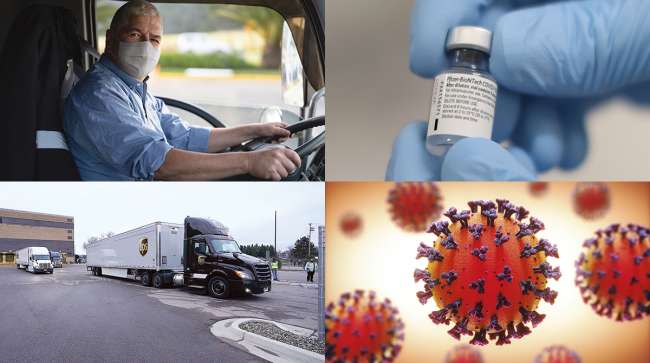Senior Reporter
A Year of Pandemic: Number of Roadside Inspections Fell

[Ensure you have all the info you need in these unprecedented times. Subscribe now.]
The supply chain has come through severe trials since the coronavirus was declared a pandemic on March 11, 2020, by the World Health Organization. Trucking and related organizations describe the challenges and their progress.
♦♦♦
“It was definitely a strange year for inspectors,” said Kerri Wirachowsky, director of the Commercial Vehicle Safety Alliance’s roadside inspection program. “In the beginning of the pandemic, a lot of agencies just stopped doing inspections completely, only stopping vehicles if they saw an imminent issue,” she said.
There were some 2.7 million inspections last year, compared with about 3.5 million by CVSA previous to that, Wirachowsky said.
Likewise, roadside inspections during CVSA’s stepped-up International Roadcheck in 2020 declined by 25%.

Read More
Interactions with drivers also were different. Social distancing took place between them and when documents had to be passed, a Ziploc plastic bag was used.
During the year, some jurisdictions took inspectors off the road and assigned them other duties.
For example, some officers who were inspectors (primarily state troopers), were temporarily redeployed to help maintain peace when violence erupted during protests over racial injustice in such places as Oregon and Wisconsin, Wirachowsky said.
“Some jurisdictions redeployed people to work on things related to COVID,” she added. “So the actual number of people doing inspections went down temporarily through 2020. It varied from state to state.”
The pandemic affected CVSA reporting too.
“As far as my data presentations go, I’m not using 2020 data. For me, violations data each year needs to be consistent. But when you have an emergency declaration from the federal government for the entire year almost, when some violations aren’t cited and trucks can run over their hours, that skews all the violation data,” she said.
Want more news? Listen to today's daily briefing below or go here for more info:




